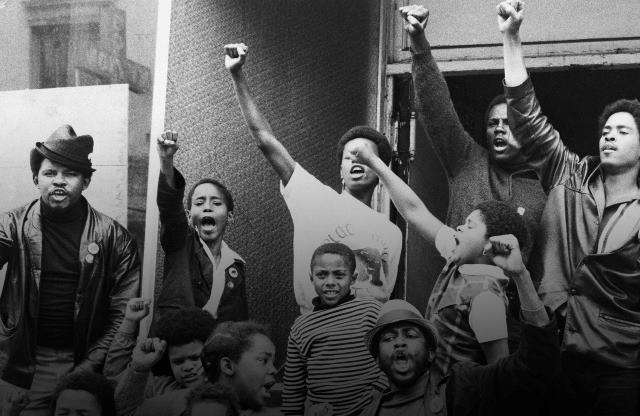Last Updated on May 4, 2023
The story of African Americans is one of resiliency, bravery, and persistence in the face of difficulty. Black Americans with African ancestry have long since triumphed over numerous challenges, including slavery, Jim Crow legislation, police brutality, and voter suppression.
Besides breaking down barriers in sports and entertainment, they have also led social movements for equality and justice. African Americans’ experiences are proof of the resilience of the human spirit and the ability of a community to bring about change.
Join us as we explore the challenges and achievements of black Americans and pay respect to their legacy of bravery and tenacity.
Historical Context of the African-American Experience
The history of the African-American experience in the United States runs deep and is often tragic. The black community has endured several difficulties throughout its history, including slavery, segregation, and current problems with systematic racism.
Gaining a greater understanding of the ongoing fight for racial justice and equality in America requires understanding the historical background of the African-American experience.

The Transatlantic Slave Trade and its Impact on Black Americans
The transatlantic slave trade, which took place from the 16th through the 19th centuries, is the foundation of the African-American experience.
Countless Africans were forcibly brought to the Americas, where they were sold as slaves and subjected to cruel and inhumane treatment. The American economy was built on slavery, with slave laborers producing crops like cotton, rice, and tobacco that were shipped to Europe.
Reconstruction and the Jim Crow Era
Reconstruction, after the Civil War, gave black Americans hope for freedom and equality. Slavery was ended by the 13th, 14th, and 15th Amendments to the U.S. Constitution, which also gave black Americans citizenship and the ability to vote.
However, reconstruction was only temporary, and the following years were marked by bloodshed, bigotry, and racial segregation.
State and local regulations that maintained racial segregation and prevented black people from accessing essential rights and services were implemented during the Jim Crow era. This unfortunate era lasted from the late 1800s until the middle of the 1960s.
The Civil Rights Movement
The 1950s and 1960s Civil Rights Movement was a turning point in the history of African-Americans. Championed by activists like Martin Luther King Jr., Rosa Parks, and Malcolm X, the movement fought against racism and segregation. And it has aimed to provide black people with equal opportunities.
Significant successes for the movement include the Voting Rights Act of 1965 and the Civil Rights Act of 1964. However, it also encountered severe violence and opposition, including the murders of several noteworthy leaders.

Contemporary Challenges and Issues Facing Black Americans
Besides the many advancements made, the African-American experience continues to be afflicted by contemporary challenges.
Black people are disproportionately affected by poverty, unemployment, and incarceration. And racial gaps in areas like education, health care, and the criminal justice system continue to exist in the African-American community.
However, calls for racial justice and police reform have grown louder in response to the killings of black people like George Floyd, Breonna Taylor, and others at the hands of law enforcement.
Struggles of the African-American Experience
The legacy of slavery has been one of the significant difficulties for African Americans. African men, women, and children were enslaved in the Americas for centuries after being forcibly removed from their homes in Africa.
Slaves were subjected to harsh living conditions, forced labor, and physical and sexual assault once they arrived in the United States.
Read: The Incredible Story of an African Prince Sold to Slavery for 40 Years
Institutionalized Racism

Institutionalized racism is a problem that African Americans have also had to deal with. The black community was denied equal access to school, housing, employment, and voting rights from the abolition of slavery to the Civil Rights Movement due to laws and policies that were put in place.
Jim Crow laws imposed racial segregation, putting African Americans in subpar neighborhoods, workplaces, and educational institutions. Today, African Americans experience lower levels of income, wealth, and economic mobility. And this has resulted in a persistent wealth disparity between them and white Americans.
According to estimates, White Americans hold 84 percent of the total wealth in the United States, despite only making up 60 percent of the population. On the other hand, Black Americans make up 13 percent of the population but only hold 4 percent of the wealth. This simply means the wealth of 400 Americans is equivalent to 43 million Black Americans.
It is clear that the legacy of legacy still lingers today.
Law Enforcement
Law enforcement has also used violence and discrimination against African Americans. Blacks have consistently experienced racial profiling, police violence, and unequal treatment in the criminal justice system.
African American communities now widely distrust law enforcement, and they also worry about being singled out and treated unfairly by police.
However, African Americans have persisted in resisting and fighting for their rights in the face of these difficulties.
They have organized and rallied to seek an end to racism and discrimination, starting with the Underground Railroad and continuing with the Black Lives Matter campaign.
This is all thanks to African American leaders like Angela Davis, Malcolm X, and Martin Luther King Jr. These heroes have motivated future generations to fight for equality and justice.

Triumphs of the African-American Community
African-American culture is not only characterized by challenges and struggles. Black Americans have made noteworthy accomplishments and remarkable contributions to various disciplines throughout history.
These include politics, sports, entertainment, and the arts. Here are just a few examples of African-American success stories:
Cultural Contributions of Black Americans
It is worth mentioning that several cultural contributions by black people have been made to American culture.
Black writers, poets, and painters who used art to communicate their experiences first emerged during the 1920s Harlem Renaissance.
People like Langston Hughes, Zora Neale Hurston, and Duke Ellington contributed to the development of American culture and paved the path for upcoming generations of black artists.
Political Achievements and Leadership
Additionally, Black Americans have made notable political accomplishments and exemplary leadership. The first black woman elected to Congress, Shirley Chisholm, advocated for racial equality and women’s rights.
Furthermore, the first black justice on the Supreme Court, Thurgood Marshall, was instrumental in ending legal segregation in the US. And Barack Obama, the country’s first black president, encouraged millions to change and hope for the better.
Educational Advancements
Segregation in public schools was ruled to be unlawful by the Supreme Court in the famous case Brown v. Board of Education in 1954.
This decision opened the door for black students to have more educational possibilities. Today, there is a strong presence of black Americans in higher education, and many of them have earned degrees in various fields.
Social Movements and Community Activism by Black Americans
Black Americans have been instrumental in social movements and neighborhood activism. Black activists’ leadership of the Civil Rights Movement in the 1950s and 1960s was vital in securing equal opportunities and rights for black Americans.
Most importantly, the movement for racial justice and police reform is still active today. Figures like Tarana Burke, Angela Davis, and Cornel West have all fought for social change.
Contemporary Relevance of the African-American Experience
The African-American experience is highly relevant today. Despite significant progress in racial equality and justice, Black Americans continue to experience systemic racism and discrimination in many ways.
Here are just a few instances of how the African-American experience is still relevant today:
Criminal Justice System
The criminal justice system is one of the most significant problems the black community is currently dealing with. Black Americans are over-represented in the criminal justice system as criminals and victims of crime.
They are more likely than their white counterparts to be stopped, searched, and arrested by the police and given harsher sentences. This has prompted numerous calls for police reform, including the defunding of police forces and the introduction of more locally directed law enforcement.

Economic Inequality
Black Americans make up a sizable portion of the American workforce. But they are more likely than white Americans to live in poverty and have lower levels of wealth and income.
This is partly a result of historical and systemic racism, which has restricted black Americans’ ability to accumulate wealth over multiple generations.
Health Disparities
The COVID-19 pandemic has drawn attention to the severe health disparities that the black community faces. Black Americans were three times more likely to contract and die from the virus than any other racial group.
This is partly a result of underlying health disparities, including higher rates of chronic illness, restricted access to healthcare, and increased exposure to environmental toxins. For the black community to become more generally wealthy, it is necessary to address health disparities.
Political Representation
Black Americans have made significant political progress. Unfortunately, they still make up a small percentage of elected officials at the federal, state, and local levels. Therefore, increasing political representation is a must to ensure that the voices and concerns of the black community are heard and considered by policymakers.
Before you go…
Hey, thank you for reading this blog to the end. I hope it was helpful. Let me tell you a little bit about Nicholas Idoko Technologies. We help businesses and companies build an online presence by developing web, mobile, desktop, and blockchain applications.
We also help aspiring software developers and programmers learn the skills they need to have a successful career. Take your first step to becoming a programming boss by joining our Learn To Code academy today!











